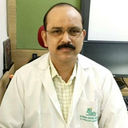Key Heart Disease Causes to Know About
Explore the causes of heart disease, including genetic, lifestyle, and medical factors. Learn how early detection and preventive measures can reduce risks effectively.

Written by Dr Sonia Bhatt
Last updated on 13th Jan, 2026
Heart disease encompasses a variety of conditions that impact the heart's function. These include coronary artery disease affecting blood vessels, arrhythmias causing irregular heartbeats, congenital heart defects present from birth, diseases of the heart muscle, and heart valve disorders. When the heart doesn’t function properly, it struggles to pump sufficient oxygen, blood, and nutrients, disrupting the normal operation of the body’s systems.
Heart disease can arise from numerous factors, ranging from genetics to lifestyle choices. Understanding these underlying causes is essential for minimising risk, enabling early detection, and facilitating timely intervention. Continue reading to explore the causes of heart disease.
Biological and Genetic Factors
The genetic makeup and biological factors play a significant role in heart disease risk. These factors include:
- Family History: Individuals with a family history of heart disease are at a higher risk, especially if close family members, such as a sibling or parent, were diagnosed at an early age—before 55 for male relatives and 65 for female relatives. This inherited predisposition can be further heightened by unhealthy habits like smoking or a poor diet.
- Race and Ethnicity: Certain racial and ethnic groups have a higher likelihood of developing cardiovascular conditions due to a greater prevalence of risk factors like high blood pressure or type 2 diabetes.
- Gender and Age: Gender also influences risk, with men generally more susceptible, while women’s risk increases post-menopause. Moreover, while heart disease can develop at any age, the risk increases with age.
Lifestyle and Behavioural Causes
Several lifestyle habits significantly contribute to the development of heart disease:
- Unhealthy Diet: Diets high in trans fats, saturated fats, sugar, salt, and cholesterol can lead to conditions like atherosclerosis. Excess sodium intake, in particular, can elevate blood pressure, further increasing heart disease risk.
- Lack of Physical Activity: A sedentary lifestyle can heighten the risk of heart disease and associated conditions like high blood pressure, obesity, elevated cholesterol, and diabetes.
- Excessive Alcohol Consumption: Overconsumption of alcohol can raise blood pressure and triglyceride levels—both of which are linked to heart disease.
- Smoking: Smoking damages blood vessels and the heart, increasing the risk of heart attacks and atherosclerosis. Nicotine raises blood pressure, while carbon monoxide from cigarettes reduces oxygen levels in the blood. Even exposure to secondhand smoke can increase heart disease risk in non-smokers.
Medical Conditions
Certain health conditions can significantly elevate your risk of developing heart disease. Here are some key examples:
- High Blood Pressure (Hypertension): When the pressure of blood flowing through your arteries is consistently too high, it places excessive strain on the heart and blood vessels. Left unmanaged, this can damage critical organs, including the heart, brain, and kidneys.
- Diabetes: Poorly controlled blood sugar levels can contribute to plaque buildup in blood vessel walls, restricting blood flow to the heart. Adults with diabetes face a higher risk of heart-related complications compared to those without diabetes.
- High Cholesterol: Cholesterol, a substance produced by the liver and found in certain foods, can accumulate in arterial walls if consumed in excess. This buildup narrows the arteries, impeding blood flow to the heart and increasing the risk of heart issues.
- Obesity: Carrying excess body fat is associated with conditions like high blood pressure, abnormal cholesterol levels, and diabetes, all of which contribute to an elevated risk of heart disease.
Check Your Risk For Heart Disease
Environmental and Socioeconomic Influences
Environmental and socioeconomic factors can also play a significant role in increasing the risk of heart disease:
- Stress: Chronic stress can negatively impact heart health by raising heart rate and blood pressure, increasing the heart's oxygen demand. This can result in chest pain (angina) or insufficient oxygen supply to tissues (ischemia). Stress triggers the release of hormones like adrenaline, which can damage artery linings, leading to hardened or thickened walls that encourage plaque buildup. Additionally, stress can elevate blood clotting factors, increasing the chances of clot formation.
- Environmental Pollution: Exposure to pollution, whether from traffic, power plants, industrial emissions, wood stove usage, or wildfires, has been linked to cardiovascular problems. Even short-term exposure can increase the risk of heart attacks, arrhythmias, strokes, and heart failure, particularly in vulnerable individuals.
Inflammatory and Infectious Causes
Heart infections can lead to severe complications over time, including heart attacks, strokes, heart failure, arrhythmias, and sudden cardiac death, particularly if not treated promptly. These infections occur when harmful microbes or irritants invade the heart, typically due to bacteria, viruses, or, less commonly, fungi. Such infections can inflame or damage critical parts of the heart, including the heart valves, heart muscle (myocardium), outer membrane (pericardium), and inner lining (endocardium). The three primary types of heart infections are:
- Endocarditis: An infection of the heart valve's lining, also known as bacterial or infective endocarditis.
- Myocarditis: Inflammation of the heart muscle.
- Pericarditis: Inflammation of the protective sac surrounding the heart’s outer surface.
Emerging Risk Factors
Researchers continue to uncover lesser-known risk factors for heart disease and their effects on cardiovascular health. These include:
- Sleep Disorders: Conditions that disrupt sleep quality, duration, or timing are increasingly linked to cardiovascular diseases. There are more than 80 types of sleep disorders, with common ones including sleep apnea, narcolepsy, insomnia, and restless legs syndrome. Adequate sleep is vital for heart health, as poor sleep can contribute to high blood pressure, obesity, diabetes, and stress—major risk factors for heart disease.
- Microplastics: Growing evidence highlights the potential dangers of microplastics to cardiovascular health. Recent studies reveal that individuals with microplastics in the plaque of their neck arteries are at a higher risk of heart attacks and strokes compared to those with plastic-free plaque. Microplastics, originating from materials like polyethylene used in plastic bags and bottles, gradually break down and enter the body through food and water.
Heart Disease: Prevention and Lifestyle Modifications
Preventing heart disease requires adopting a healthier lifestyle:
- Eat Heart-healthy Foods: Consume fruits, vegetables, whole grains, and healthy fats; avoid trans fats, excessive salt, and sugar.
- Stay Active: Engage in at least 150 minutes of moderate exercise weekly.
- Quit Smoking and Limit Alcohol: Avoid smoking and drink alcohol in moderation.
- Manage Stress: Practice relaxation techniques like yoga or meditation.
- Monitor Health Regularly: Check blood pressure, cholesterol, and sugar levels frequently.
- Maintain Healthy Weight: Stay within a healthy weight range to reduce strain on the heart.
- Follow Medications: Take prescribed medicines for existing conditions like diabetes or hypertension.
Conclusion
Heart disease stems from a complex interplay of factors, including genetics, lifestyle choices, and medical conditions. While some risk factors, such as family history or age, cannot be controlled, many others can be managed through conscious lifestyle changes. By understanding the causes and implementing preventive measures—such as maintaining a healthy diet, staying physically active, and monitoring key health parameters—individuals can significantly reduce their risk of heart disease. Early detection and timely intervention are crucial for mitigating complications.
Consult Top Cardiologists
Check Your Risk For Heart Disease
₹829(₹2072)60% off
Consult Top Cardiologists

Dr. Arulnidhi Ayyanathan
Cardiologist
12 Years • MBBS, MRCP, AB, MBA
Chennai
Apollo Hospitals Greams Road, Chennai

Dr Nanda Kishore Panigrahi
Cardiologist
32 Years • "M.B.B.S: V.S.S. Medical College, Sambalpur University - 1986 – Burla, Odisha, India; MD (Medicine) S.C.B. Medical College, Utkal University - 1990 – Cuttack, Odisha. India; DM (Cardiology) S.C.B. Medical College, Utkal University - 1994 – Cuttack, Odisha, India;
Chinagadila
Apollo Hospitals Health City Unit, Chinagadila
Dr Sundaram C
Cardiologist and Electrophysiologist
10 Years • M.B.B.S, M.D (General Medicine) D.M (Cardiology)
Tiruchirappalli
Apollo Speciality Hospitals Old Palpannai, Tiruchirappalli

Dr. Prashant Adeppa
Cardiologist
10 Years • MBBS, MD General Medicine, DM Cardiology (Armed Forces Medical College)
Bengaluru
Apollo Hospitals Bannerghatta Road, Bengaluru

Dr. Vignesh Thanikgaivasan
Cardiologist
11 Years • MBBS, MD (Gen Med), DM (Cardiology) AFAPSIC, FIMSA, FSCAI
Chennai
Apollo Hospitals Greams Road, Chennai
(100+ Patients)




